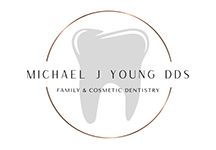 In ancient times humans were bestowed with three sets of molars to accommodate their diet which included roots, bark, seeds, raw vegetables, and large pieces of raw meat. Over the years, the human jaw has become smaller due to a softer diet of cooked foods. As a result many people don’t always have room for their wisdom teeth or third molars. Wisdom teeth can cause many problems. Read on to find out more about your third molars.
In ancient times humans were bestowed with three sets of molars to accommodate their diet which included roots, bark, seeds, raw vegetables, and large pieces of raw meat. Over the years, the human jaw has become smaller due to a softer diet of cooked foods. As a result many people don’t always have room for their wisdom teeth or third molars. Wisdom teeth can cause many problems. Read on to find out more about your third molars.
Problems
Anthropological research has shown the human jaw has become smaller over the past 20,000 years due to changes in our diet, and cooked food that is easier to chew. Because our jaws are smaller there is often not enough room to accommodate our third molars. As a result it is not uncommon that your wisdom teeth grow sideways, do not fully erupt (partially impacted), or get trapped by adjacent teeth and can’t erupt at all (fully impacted). Partially impacted teeth can cause a whole host of problems including:
- Bacterial contamination resulting in decay
- Inflammation
- Infection
- Gum disease
- Crowding
The Need for Removal
Due to these problems it has become a common practice to remove wisdom teeth even before they have erupted, especially if it appears there will not be enough room to accommodate them. Because wisdom teeth are so far back in your mouth and there is not much space, they are difficult to keep clean, especially if they only partially erupt or erupt at an odd angle. Bacterial contamination can cause serious problems.
The Procedure
The procedure can be done at your dentist’s office or a dental surgeon’s office, and can be performed as out-patient surgery. You will likely be given a general anesthesia so you will sleep through the procedure. If stitches are required your dentist may use sutures that dissolve by themselves. You will also be given pain killers to take home.
ABOUT YOUR LAFAYETTE COSMETIC DENTIST:
Michael J. Young, DDS, and his skilled team of dental care professionals happily serve patients and their families, living in Breaux Bridge, Broussard, Scott, Youngsville, and surrounding communities. To learn more, contact us today at our Lafayette dentist’s office at 337-237-6453.
